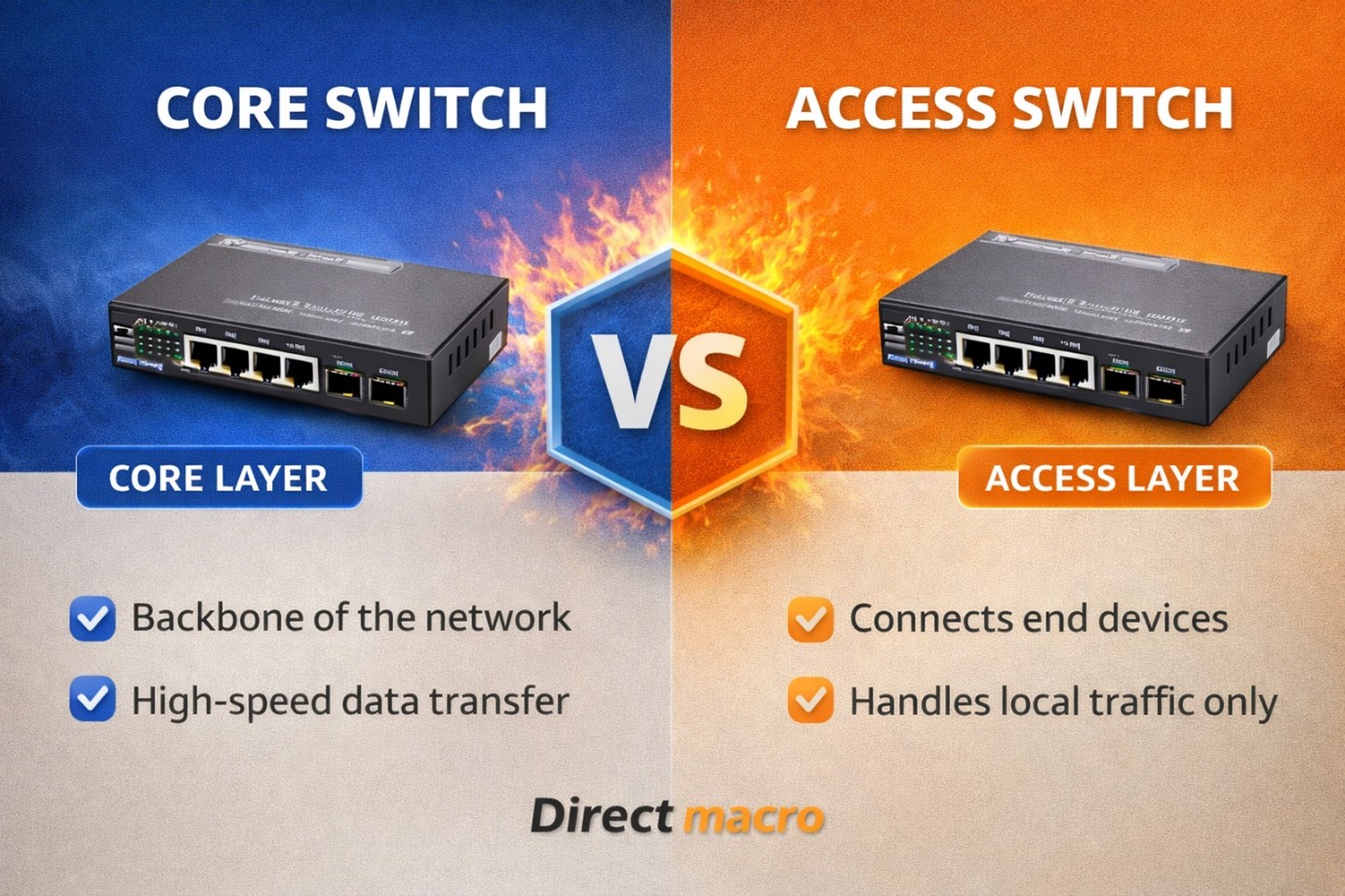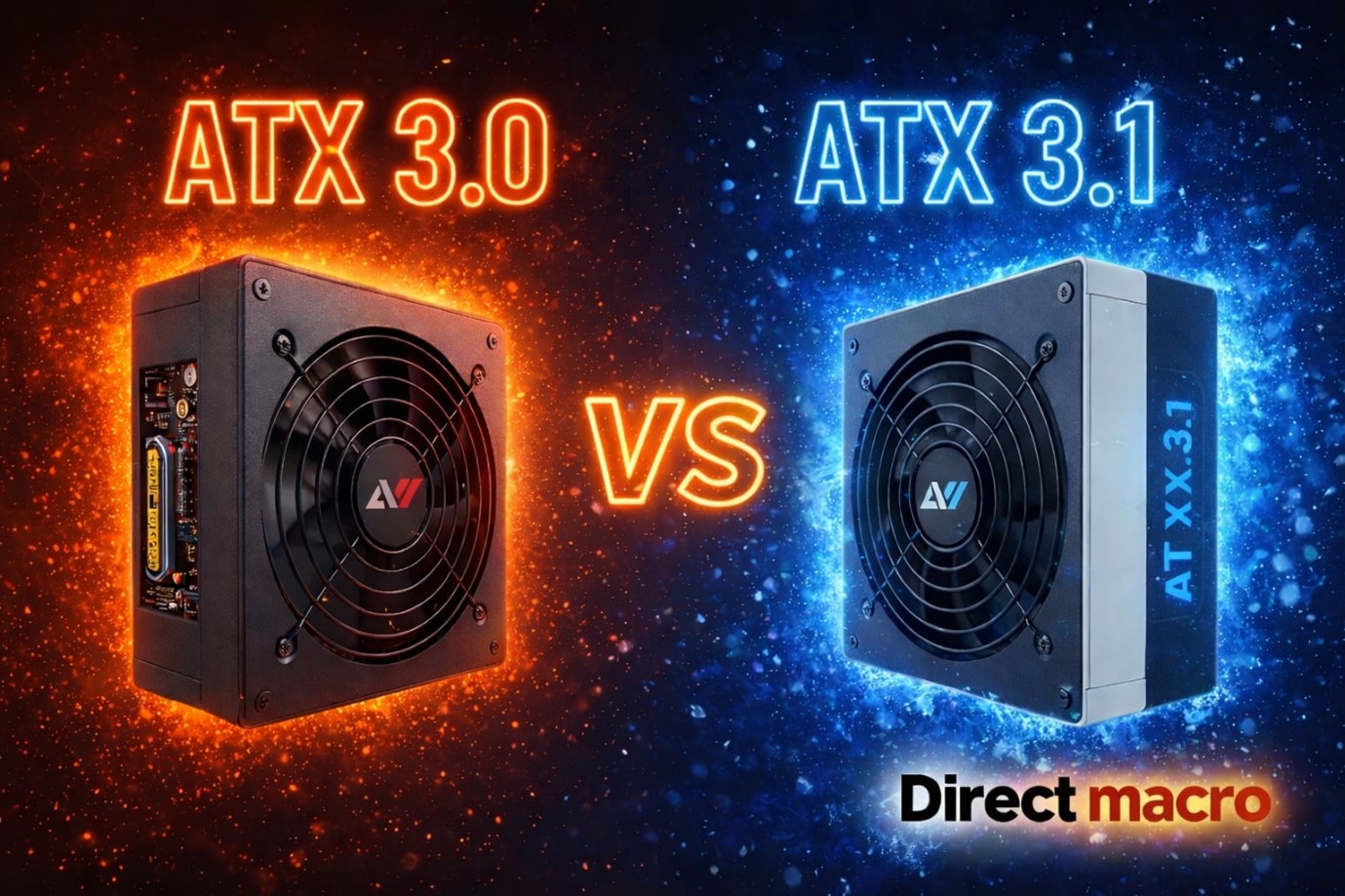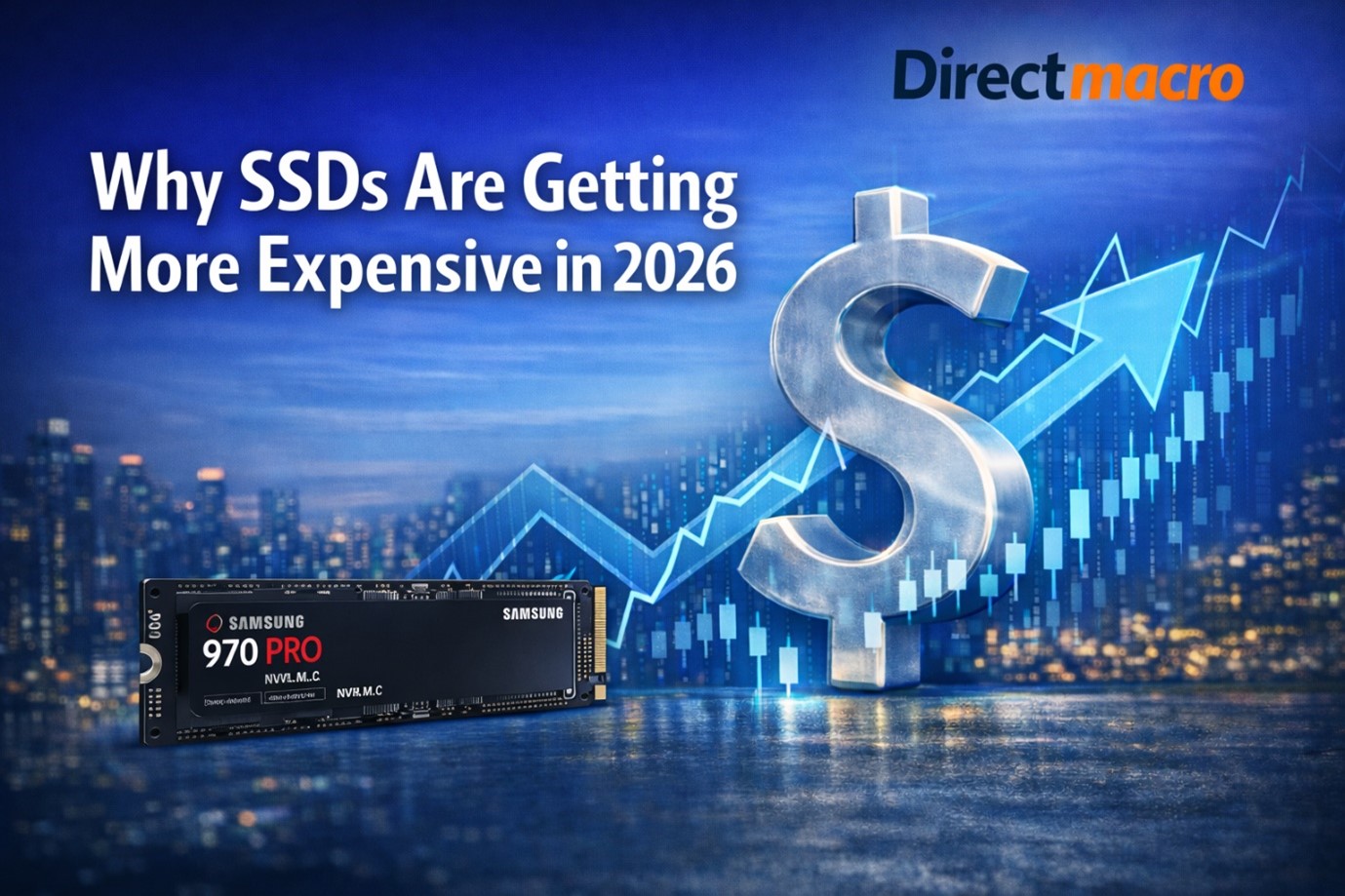AMD Ryzen 5 vs Intel i7 | What Is There To Compare in 2026
Usually, when we talk about computer processors, two names pop up in our minds: AMD and Nvidia. Their dominance in the processor manufacturing sector is the reason behind this. Though founded just one year earlier than AMD in 1968, Intel held a firm grip for quite some time in the microprocessor sphere. Only when AMD emerged as a reliable microprocessor manufacturing brand, Intel’s monopoly was broken and discussions like Ryzen 5 vs i7 were able to take place.
With its inception in 1969, AMD was founded by Jerry Sanders along with a group of former Fairchild Semiconductor colleagues. Initially, AMD was producing clones of Intel’s chips under a license from Intel and had established itself as a competitor. By the early 1990s, AMD became a renowned name in the processor industry by creating its original products and emerging as a real competitor to Intel.
Intel releases its processor series with the numbers and names Core i3, i5, i7, and i9, whereas AMD gives names to its processor series like Ryzen 3, 5, 7, and more. However, the numbers in these series are somewhat equivalent to each other, and the processors are pitted against the numbers. For example, Intel Core i3 is comparable to AMD Ryzen 3, and so on.
If that is the case, then the question arises: Why the comparison of AMD Ryzen 5 vs i7? Shouldn’t it be AMD Ryzen 7 vs Intel i7? It is a valid question and a fair one, too. To answer this question, these two processors complement each other in quite a unique way and address budget and necessity considerations. Before we head into this Intel vs Ryzen battle, we need to understand these two processors.
Ryzen 5 vs i7: Understanding Both CPU Families
This current era of Intel vs. Ryzen is the most confusing time to buy a new CPU, as Intel’s 14th-generation CPUs are competing against AMD’s X3D variants. Worry not; whenever in doubt about tech, Direct Macro is the best source to clarify the doubt clouds.
If you’re pressed for time, the i7 series typically offers superior single-core performance. Conversely, for those seeking enhanced multi-core capabilities, the Ryzen 5 lineup tends to be the preferred choice.
Intel vs Ryzen: AMD Ryzen 5 Processors
- Cores: 6
- Threads: 12
- Base speed: 4.7GHz
- Boost speed: 5.3GHz
- Cache: L3 32MB
- Socket: AM5
AMD Ryzen 5 is a core part of AMD’s Ryzen broader series. Not just the Ryzen 5, but the whole series is designed for affordability and performance for a variety of users. However, the Ryzen 5 series was introduced for mid-range users including gamers, content creators, and everyday users. It does not mean it compromises on performance and cannot stand on its own with some future-generation CPUs.
Key Features
- Multi-core Performance: Ryzen 5 CPUs boast a higher number of cores when the talk is about AMD Ryzen vs Intel Core. They provide superior multitasking and efficiency in threaded applications because they have 6 to 8 cores.
- Simultaneous Multithreading (SMT): Various Ryzen 5 models, like Ryzen 5 3600 and Ryzen 5 5600X, support this new-edge technology. SMT enables each core to handle two threads simultaneously to boost performance in tasks such as video editing.
- Competitive Pricing: AMD is known for providing value for money, and Ryzen 5 has not disappointed in this realm.
- Zen Architecture: Ryzen 5 processors boast efficiency and performance, thanks to Zen architecture. AMD has refined and enhanced the architecture from Zen to Zen 3 (and anticipation is building around Zen 4). The improvement includes instructions per clock (IPC), energy efficiency, and overall computing power.
- Integrated Graphics: Chosen Ryzen 5 models come with integrated Radeon Vega graphics. They are purely beneficial for entry-level gaming, providing decent gaming performance without needing a separate graphics card.
- Platform and Future Proofing: Ryzen processors are compatible with the AM4 socket, ensuring AMD’s commitment to an easier upgradation through a wide range of motherboards.
Use Cases
- Gaming: It can deliver solid gaming performance, especially when paired with a strong GPU.
- Content Creation: The multi-core efficiency makes Ryzen 5 a good choice for content creation on a budget.
- Everyday Computing: More than sufficient for day-to-day tasks, including web browsing, office applications, and media consumption.
Intel vs Ryzen: Intel i7 Processors
- Cores: 20 (8+12)
- Threads: 28
- Base Clock: 3.4 GHz
- Boost Clock: 5.6 GHz:
- TDP: 125W
Intel’s Core i7 processors are a premium tier within the impressive Intel CPU lineup. Intel manufactured them to be synonymous with advanced computing. Core i7 caters to power gamers, users, and professionals demanding high performance by offering a blend of robust single-threaded and multi-threaded performance. These processors will not leave you hanging whatever the task is like intensive gaming, content creation, or heavy multitasking.
Key Features
- Hyper-Threading Technology: Though i7 is known for efficient single-core performance it also supports hyper-threading. Means each core can handle two threads simultaneously.
- Turbo Boost Technology:Core i7 processors feature Intel Turbo Boost, which facilitates performance on demanding tasks. This technology can dynamically increase the processor’s clock speed above its base frequency when needed.
- High Core Counts:The i7 will take the lead in the Ryzen 5 vs i7: Core battle because of its higher core count, which ranges from 4 to 8.
- Integrated Graphics: Many i7 CPUs come with Intel’s integrated graphics, such as Intel UHD Graphics or, in newer models, Intel Iris Xe Graphics. These can handle everyday computing tasks, but do not expect much heavy lifting from them.
- Advanced Technologies:Core i7 processors have a suite of Intel technologies like Intel Optane Memory. It achieves faster data access and improved responsiveness. For better thermal management and performance, it has a thermal velocity boost.
Use Cases
- Gaming: i7 processors provide a smooth gaming experience with their high clock speeds and core counts, which allow them to run the latest games at high settings.
- Content Creation: The multi-core performance and Hyper-Threading capability of i7 CPUs make them a solid choice for video editing, 3D rendering, and complex creative tasks.
- Professional Workloads: Ideal for professionals who need a powerful processor to handle simulations, large data processing, and other intensive tasks.
AMD Ryzen vs Intel i7: Fundamental Differences
The competition in the CPU market has traditionally been a duel between AMD and Intel, two giants that have dominated the processor market for many years. AMD has always provided more value for money and Intel offers slightly improved speedy performance. However, with both companies releasing several impressive CPUs in the last few generations, this distinction has become less pronounced recently.
The distinctive feature that separates the two is the architecture of the present and former generations. Intel’s 13th and 14th generations are built on “Raptor Lake,” a hybrid architecture. AMD has launched Zen4 architecture in the Ryzen 7000 series. Intel’s 14th generation enhances the Raptor Lake line more, focusing on marginal gains in efficiency and clock speeds.
Read More: AMD vs Intel 2023: Comprehensive Guide to Best Processors
This talk is about comparing Ryzen 5 vs i7, so let’s get to it.
AMD Ryzen 5 |
Intel Core i7 |
|---|---|
| Draws less power | Faster clock speeds |
| Excellent price to performance | Better performance |
| Great for budget-mid range gaming | More cores and threads |
| Affordable | More expensive |
Ryzen 5 vs i7: Differences In a Nutshell
Architecture
Intel Core i7: It uses Raptor Lake architecture along with Skylake or Kaby Lake microarchitecture in different models. Skylake or Kaby Lake microarchitectures are ideal for single-core applications due to their better performance.
AMD Ryzen 5: AMD incorporates a Zen architecture frame with the latest being Zen4 in it. The modular designs empower manufacturers to release processors with up to 16 cores.
Cores
Intel Core i7: Though i7 has a higher core count of 4 to 8, it excels in single-core performance. It performs better for programs that use a single core extensively, such as games and particular productivity apps.
AMD Ryzen 5: If we are comparing Ryzen 5 vs i7 cores then Ryzen 5 might have a lower range of 4 to 6 cores but it covers it up in multi-core performance. This makes it a capable processor for multitasking operations like video editing, 3D rendering, and gaming.
Gaming Performance
One application where the Intel Core i7’s single-core performance excels above AMD Ryzen 5 is gaming. Even yet, the AMD Ryzen 5 is frequently the more cost-effective option while still providing outstanding gaming performance.
Memory Compatibility
Intel Core i7: The i7 has a slight advantage over Ryzen 5 as it is designed for high memory bandwidth to support memory-intensive applications.
AMD Ryzen 5: It also supports high-speed memory; however, it is a step behind the i7. Additionally, it covers up with ECC memory that aids in particular applications like data analysis and scientific computing by adding an extra layer of data protection.
Power Consumption
Intel Core i7: The power consumption of Core i7 processors can vary widely. The TDPs generally range from 65W to 125W, influenced by the generation, performance level, and whether the processor is intended for desktop or mobile use.
AMD Ryzen 5: Power consumption varies across different models and its performance abilities. However, a typical Ryzen 5 processor has a thermal design power (TDP) range from 65W to 95W.
Price
Intel Core i7: Intel’s processors are more expensive than their counterparts. For example, the Intel Core i7-11700K with eight cores and 16 threads stands around $399.
AMD Ryzen 5: Bought for around $272, AMD Ryzen 5 5600X with six cores and 12 threads is a valuable option for users seeking multicore performance at a reasonable price.
Overclocking
Intel Core i7: To achieve higher overclocking levels than Ryzen 5, you must tweak the base clock frequency, voltage, and Turbo Boost settings. Overclocking an Intel i7, however, increases power consumption and heat generation.
AMD Ryzen 5: Changes to the BIOS are needed to overclock a Ryzen 5 processor. The amount of overclocking depends on the model and the cooling system.
Ryzen 5 vs i7: Comparing Diferent Generation SKUs
Below, you’ll find a list of stock-keeping units (SKUs) for Intel Core i7 12th, 13th, and 14th generation CPUs and AMD Ryzen 5 3000, 5000, and 7000 series CPUs. Core counts and clock speeds have changed over the years.
Ryzen 7000 vs 14th-gen
| Specifications | Intel Core i7-14700K | AMD Ryzen 5 7600X |
|---|---|---|
| Threads | 28 | 12 |
| Cores | 20 | 6 |
| Base TDP | 125W | 105W |
| Max Boost Clock | 5.6 GHz | 5.3 GHz |
Ryzen 7000 vs 13th-gen
| Specification | Intel Core i7-13700K | AMD Ryzen 5 7600 |
| Threads | 24 | 12 |
| Cores | 16 | 6 |
| Base TDP | 125W | 105W |
| Max Boost Clock | 5.4 GHz | 5.3 GHz |
Ryzen 5000 vs 12th-gen
| Specification | Intel Core i7-12700K | AMD Ryzen 5 5600X |
| Threads | 20 | 12 |
| Cores | 12 | 6 |
| Base TDP | 125W | 65W |
| Max Boost Clock | 5 GHz | 4.6 GHz |
Ryzen 3000 vs 11th-gen
| Specification | Intel Core i7-12700K | AMD Ryzen 5 3600X |
| Threads | 16 | 12 |
| Cores | 8 | 6 |
| Base TDP | 125W | 95W |
| Max Boost Clock | 5 GHz | 4.4 GHz |
FAQs
Which is better Ryzen or Intel?
Ryzen processors are a better option if you are looking for value and multicore processing. However, Intel is the preferred choice if you want power-packed single-core performance, like heavy gaming or content creation.
Is Ryzen better than Intel?
Whether Ryzen is better than Intel depends on specific needs. Ryzen often offers better value and multi-core performance, while Intel typically excels in single-core tasks and gaming performance.
Is the Ryzen 5 better than the i7?
It solely depends on the usage criteria. If cost and affordability are your concerns, then Ryzen 5 is better. It will provide better multicore performance at the best value.
What is AMD Ryzen 5 compared to Intel?
AMD Ryzen 5 offers more cores and superior multi-threaded performance, ideal for multitasking and content creation. In contrast, with strong integrated graphics, Intel Core i5 excels in single-threaded tasks and gaming.
The Final Say: Ryzen 5 vs i7
When compared side by side with the Ryzen 5 7600X, the Intel Core i7-14700K and 13700K are obviously superior processors. Intel 13th or 14th-generation central processing units are the way to go if you’re after something much faster that will improve performance across the board, including gaming. Still, AMD comes out on top in terms of value, thanks to the Ryzen 5 7600X’s excellent price-to-performance ratio. If you’re striving to finish your PC build with a faster GPU but are on a tighter budget, the Ryzen 5 is a fantastic choice.
Do you need advice on buying or selling hardware? Fill out the form and we will return.

Sales & Support
(855) 483-7810
We respond within 48 hours on all weekdays
Opening hours
Monday to thursday: 08.30-16.30
Friday: 08.30-15.30








